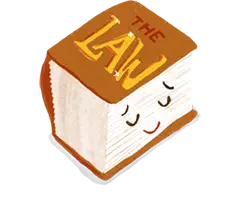Topic
Crime and justice
This page contains different parts of laws about Crime and justice.

Important laws about Crime and justice
Court Martial Act 2007
This Act sets up a permanent Court Martial of New Zealand to deal with military law.
3: Purpose of this Act
Court Martial Act 2007
About the Court Martial Act 2007: What the Law Covers
4: Overview of this Act
Court Martial Act 2007
This Act must be read together with the 1971 Act.
6: This Act to be read with 1971 Act
Court Martial Act 2007
New Zealand has a special court called the Court Martial.
8: Court Martial of New Zealand established
Court Martial Act 2007
The Court Martial works in small groups with one Judge in each group.
9: Court Martial must sit in divisions
Court Martial Act 2007
Who are the Judges in the Court Martial?
10: Judges of Court Martial
Court Martial Act 2007
Who can be a Court Martial Judge
11: Eligibility for appointment as Judge
Court Martial Act 2007
The Governor-General chooses the Chief Judge.
12: Appointment of Chief Judge
More laws about Crime and justice
About this project
What is this project?
This project is an experiment to take difficult language, and make it easier to read and understand for everyone.
How do we do this?
What's our process for taking the law and turning it into plain language?
Why is the law written like it is?
Laws are often hard to read. They use a lot of words and language we don't usually use when we talk.
Should we use AI for this?
What are the good and bad sides of using AI?
Is this information the actual law?
We hope that this information will help people understand New Zealand laws. But we think that it's important you talk to someone who understands the law well if you have questions or are worried about something.
You can talk to Community Law or Citizen's Advice Bureau about your rights.
Remember that AI can make mistakes, and just reading the law isn't enough to understand how it could be used in court.
You can talk to Community Law or Citizen's Advice Bureau about your rights.
Remember that AI can make mistakes, and just reading the law isn't enough to understand how it could be used in court.




